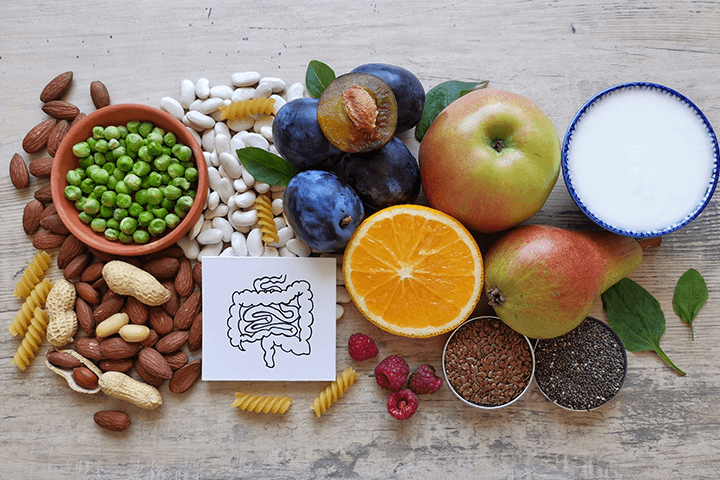Gut health has garnered a lot of coverage lately, which may leave you wondering “what does that mean and why is it important?" Gut health refers to the overall health of your entire digestive system and the microorganisms living in it. The largest part of your digestive system is your gastrointestinal tract, which includes the:
- esophagus
- stomach
- small intestine
- large intestine
The Impact of an Unhealthy Gut
In addition to digestion, your gut health plays a role in:
- obesity
- type 2 diabetes
- irritable bowel syndrome
- colon cancer
- how your immune system functions
- mental health

The Gut-Brain Connection
Your gut contains a second part of your nervous system called the enteric nervous system. It runs throughout the entire GI tract and is referred to as your “second brain." The connection between our gut and brain is still being studied, but research shows they interact closely and can directly affect one another.
Ever been so anxious you feel like you're going to vomit or so excited you get butterflies in your stomach? Your gut can recognize your emotional state, prompting GI issues like:
- nausea
- intestinal or abdominal pain
- heartburn
- cramping
- loose stools
That's why experts believe persistent GI issues could be caused by your emotions. Therapy and other psychological treatments combined with traditional treatments may give you more relief from GI conditions.
How Do You Keep Your Gut Healthy?
Your gut uses a combination of nerves, bacteria, and hormones to break down food and absorb nutrients. Gut health is determined by the types and levels of bacteria in your GI tract. A healthy gut has a balance of both good and bad bacteria. You can promote a healthy gut by:
Avoiding:
- food low in fiber, high in sugar, and processed
- antibiotics found in meat products
Seeking:
- unprocessed, whole foods with fiber
- probiotic-rich foods
- healthy sleep habits
- self-care and stress reduction
- exercise
Probiotics vs. Prebiotics
Probiotics and prebiotics are both important parts of a balanced gut. Probiotics are microorganisms that improve or maintain the “good" bacteria in your gut. Prebiotics are the food for probiotics, which allows them to grow and reproduce. You should try to eat foods rich in both often.
Probiotics can be found in fermented foods such as:
- yogurt
- pickles
- sauerkraut
- fermented beverages like kombucha
- sourdough bread
Prebiotics can be found in fiber-rich foods like:
- vegetables: artichokes, asparagus, broccoli, cabbage, garlic, mushrooms, onions and leafy greens
- fruits: apples, bananas, berries, raisins
- legumes: chickpeas, soybeans, lentils
- grains: barley, corn, oats, rice, whole wheat
- teas
- honey
Signs and Symptoms
Wondering if your gut could use some TLC? Here are a few common symptoms that could signal an imbalance:
- gas, bloating, other stomach issues
- unintentional weight loss or gain
- skin issues
- mood fluctuations
- trouble concentrating
- chronic fatigue
- sugar cravings

Resources for TRS-ActiveCare and TRS-Care Standard
Well onTarget® Wellness Coaching
A Wellness Coach through Well onTarget® Wellness Coaching can work with you to improve your nutrition and fitness level.
Resources for TRS-Care Medicare Advantage
Let’s Move by UnitedHealthcare®
At no added cost to you, Let's Move by UnitedHealthcare is here to help keep your mind, body and social life active. With simple resources, tools, fun events and personalized support, we'll help you explore ways to eat well, stay connected and be financially, physically and mentally fit. Start today — visit letsmovebyuhc.com.